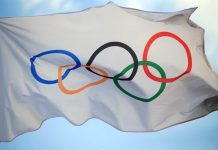The Olympic Games are a global sporting event that brings together athletes from around the world to compete in a variety of sports. With a history dating back to ancient Greece, the Olympics have evolved into a symbol of international unity and athletic excellence. This article delves into the history, significance, disputes, and achievements of the Olympic Games, providing a comprehensive overview of this iconic event.
History of the Olympics
Ancient Olympics
The ancient Olympic Games originated in Olympia, Greece, around 776 BC. These games were held every four years and were a religious festival in honor of Zeus. Only freeborn Greek men were allowed to participate, competing in events such as running, wrestling, and chariot racing. The ancient Olympics continued until 393 AD, when they were banned by the Roman Emperor Theodosius I.
Modern Olympics
The modern Olympic Games were revived in 1896 by Pierre de Coubertin, a French educator and historian. The first modern Olympics were held in Athens, Greece, with athletes from 14 countries competing in 43 events. Since then, the Olympics have grown in scale and scope, becoming a premier global sporting event.
Significance of the Olympics
The Olympics hold immense significance as a platform for promoting peace, unity, and international cooperation. The Olympic motto, “Citius, Altius, Fortius” (Faster, Higher, Stronger), embodies the spirit of excellence and determination. The Games provide an opportunity for athletes to showcase their talents and for nations to come together in celebration of sport.
Disputes and Challenges
Political Controversies
The Olympics have often been a stage for political disputes. The 1936 Berlin Olympics were used by Nazi Germany to promote its ideology. The 1980 Moscow Olympics and the 1984 Los Angeles Olympics saw boycotts by numerous countries due to political tensions. These events highlighted the intersection of sports and politics.
Doping Scandals
Doping has been a persistent issue in the Olympics. The East German doping scandal of the 1970s and 1980s, the Russian doping scandal in recent years, and various individual cases have marred the integrity of the Games. The International Olympic Committee (IOC) continues to combat doping through stringent testing and regulations.
The Olympics During World Wars
The Olympic Games have long been a symbol of international unity and peace. However, the outbreak of the World Wars had a profound impact on this global event. The Games were cancelled during both World War I and World War II, highlighting the global turmoil and disruption these conflicts caused.
World War I
The 1916 Summer Olympics were scheduled to be held in Berlin, Germany. However, due to the outbreak of World War I in 1914, the Games were canceled. The war lasted until 1918, and the devastation and political instability that followed made it impossible to resume the Games until 1920.
World War II
Similarly, the 1940 and 1944 Olympic Games were canceled due to World War II. The 1940 Summer Olympics were initially planned for Tokyo, Japan, but were later reassigned to Helsinki, Finland, before ultimately being canceled due to the outbreak of the war. The 1944 Games, scheduled for London, were also canceled as the world was engulfed in the conflict.
Post-War Resumption
After World War II, the Olympic Games resumed in 1948 in London. These Games were dubbed the “Austerity Games” due to the economic hardship and rationing that still affected much of Europe. Despite these challenges, the Games were a symbol of recovery and a step towards rebuilding international camaraderie.
Impact and Significance
The cancellation of the Olympic Games during the World Wars underscored the profound impact of global conflicts on international events. The post-war Games played a crucial role in promoting peace and unity, helping to heal the wounds of war and bringing nations together through the spirit of sport.
Achievements and Records
The Olympics have witnessed numerous remarkable achievements and records. Athletes like Usain Bolt, Michael Phelps, and Simone Biles have set new benchmarks in their respective sports. The table below summarizes the most recent Olympics, highlighting the host city, winning country, runner-up country, and notable records.
Table of Recent Olympics
| Year | Host City | Winning Country | Total Medals | Runner-Up Country | Total Medals | Notable Records |
| 2020 | Tokyo, Japan | USA | 113 | China | 88 | New world record in women’s triple jump by Yulimar Rojas (Venezuela), achieving a distance of 15.67 meters. |
| 2016 | Rio de Janeiro | USA | 121 | Great Britain | 67 | Michael Phelps became the most decorated Olympian of all time with a total of 28 medals, including 23 golds. |
| 2012 | London, England | USA | 103 | China | 91 | Usain Bolt defended his titles in the 100m, 200m, and 4x100m relay, becoming the first athlete to achieve the ‘double triple’ (winning all three events in two consecutive Olympics). |
| 2008 | Beijing, China | China | 80 | USA | 110 | Michael Phelps won 8 gold medals in swimming, breaking Mark Spitz’s record of 7 golds in a single Olympic Games. |
| 2004 | Athens, Greece | USA | 101 | China | 63 | Carly Patterson became the second American woman to win the all-around gold medal in gymnastics, 20 years after Mary Lou Retton’s victory in 1984. |
| 2000 | Sydney, Australia | USA | 93 | Russia | 88 | Cathy Freeman lit the Olympic flame and won the 400m, becoming a national hero in Australia. |
The Olympic Flag and Its Significance
The Olympic flag is one of the most recognizable symbols of the Olympic Games and carries deep significance. It was designed by Pierre de Coubertin in 1913 and was first hoisted in 1920 at the Antwerp Games.
Design and Symbolism
The flag features five interlocking rings on a white background. The rings are blue, yellow, black, green, and red. These colours, along with the white background, were chosen because at least one of them appears on every national flag in the world, symbolizing the universality of the Olympic Movement.
The Five Rings
The five rings represent the five inhabited continents of the world: Africa, the Americas, Asia, Europe, and Oceania. This design emphasizes the coming together of athletes from all corners of the globe to compete in the spirit of sportsmanship and unity.
The Olympic Motto
The Olympic motto, “Citius, Altius, Fortius” (Faster, Higher, Stronger), often accompanies the flag. This motto encapsulates the athletes’ pursuit of excellence and their relentless drive to improve their performances.
Significance
The Olympic flag is more than just a symbol of the Games; it represents the ideals of peace, unity, and mutual understanding. The interlocking rings symbolize the union of the five continents and the meeting of athletes from around the world at the Olympic Games. This flag is a beacon of hope and inspiration, reflecting the core values of Olympism, including respect, friendship, and excellence.
Usage
During the opening and closing ceremonies of the Olympic Games, the flag is prominently displayed. It is also raised at the main stadium of the host city and other venues where competitions take place. The raising and lowering of the flag are ceremonial acts that signify the official start and end of the Games.
By understanding the symbolism and significance of the Olympic flag, we can better appreciate its role in promoting global unity and the Olympic spirit.
Conclusion
The Olympic Games are more than just a sporting event; they are a celebration of human potential and international unity. Despite the challenges and controversies, the Olympics continue to inspire generations of athletes and fans around the world. By understanding the history, significance, and achievements of the Olympics, we can appreciate the profound impact these Games have on our global society.
Also Read: Manu Bhaker: From Early Struggles to Olympic Glory in 2024





